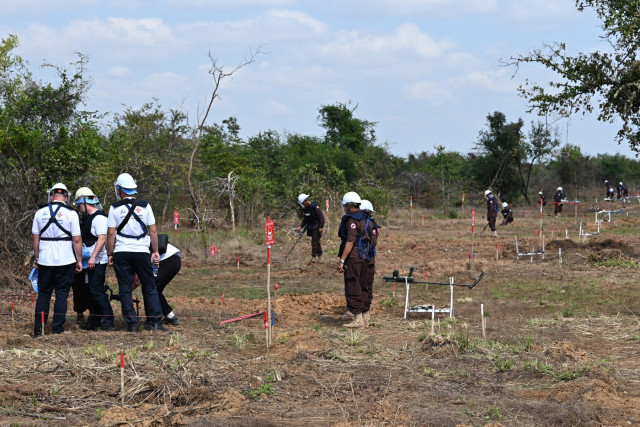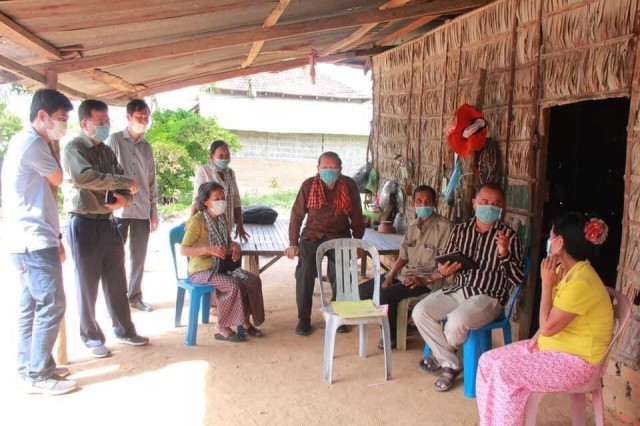Cambodia Soon to Be without Landmines but Not the World Unfortunately

- By Cambodianess
- June 4, 2023 10:00 AM
This was in the early 1990s on a road in the countryside. At the time, most people were using bicycles to get around. We would see children sitting on bicycles too big for them who seemed to be dancing when they were extending their legs to pedal. The adults, straight as ramrods on their seats, were riding with a great deal of elegance in spite of the poor condition of the dirt roads. One very special image of a cyclist comes to mind. As I was travelling in an NGO vehicle, we had passed a man on a bicycle. From a distance, he looked like any other cyclist travelling slowly, without appearing to make any effort. When we rode alongside him, I was stunned to see that his two legs had been amputated below the knees and that he was fitted with metal and wooden prosthetics.
It is the official opening of the 12th ASEAN Para Games in Phnom Penh on June 3 that brought back this image as well as those of the many other amputees we were seeing during those years.
In a 2019 report, the NGO Landmine and Cluster Munition Monitor was stating that 20,000 Cambodians had been killed and around 45,000 others injured by landmines. According to 2022 data, the number of victims has significantly dropped, going from 4,320 persons in 1996 to 44 in 2021 as the country has set as its goal to have completely removed every landmine and cluster munition from its soil or underground by 2025.
Cambodia is therefore about to be fully done with those devices that keep on killing and hurting people long after wars are over. For all that, Cambodian mine-clearing experts will not all have to necessarily change careers.
Their expertise is already being requested by Ukraine to train mine-clearing people to remove Russian landmines from Ukrainian soil. This request has in fact been discussed a few days ago during a conversation between Prime Minister Hun Sen and Ukrainian President Volodymyr Zelenskyy. And as long as the 1997 Ottawa Convention banning anti-personnel mines will not have been ratified by superpowers such as Russia, China and the United States that have the capacity to produce those “cowards’ weapons,” this expertise will no doubt still have opportunities to be of use.
This is of course a source of pride for Cambodia to be able to help other countries in the field of demining. But pride with a bitter taste as the pain that the country has gone through due to landmines will not have been enough, in spite of the 164 countries that have signed the Ottawa Convention, to entirely eliminate the anti-personnel mines from the world’s arsenal.















